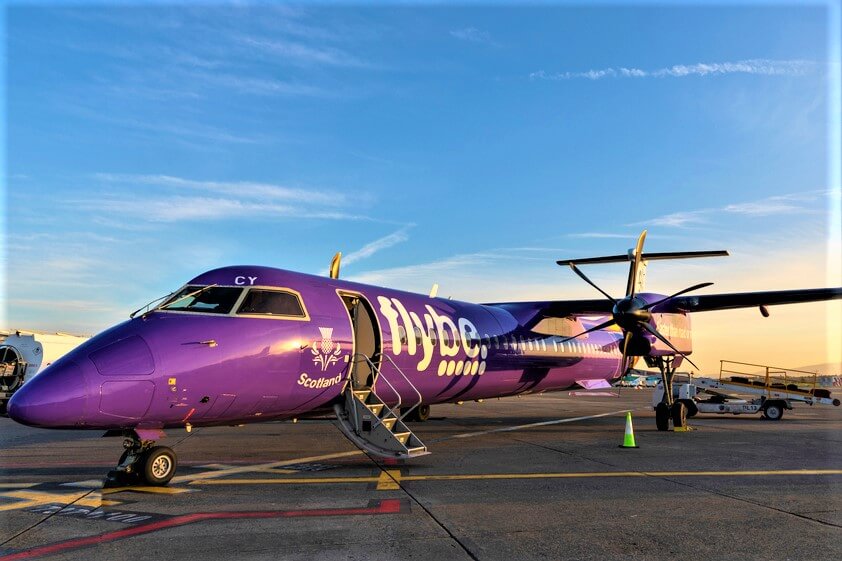Flybe, the British regional airline which ceased all of its operations in March 2020, missed out on a key contract with Aer Lingus that could have reopened the skies of Ireland for the collapsed airline.
Flybe was one of several airlines bidding to sign a regional operations agreement with Irish flag carrier Aer Lingus, the subsidiary of the International Consolidated Airlines Group (IAG). However, the regional airline lost its hopes to revive its operations on November 14, 2020, after the regional franchise was handed to Emerald Airlines, a new carrier backed by aviation entrepreneur Conor McCarthy.
Earlier in October 2020, a shareholder of Flybe expected to revive the air carrier and return it to the service in 2021. The shareholder stepped into negotiations with EY in order to relaunch a smaller version of the airline as well as acquire a large number of Flybe’s assets. There appeared a hope to give the airline the second breath when EY, the bankruptcy administrator of the regional airline, agreed on a Flybe’s sale deal.
Initially, the brand, intellectual property, stock, and equipment, as well as business and assets of Flybe, should have been brought back to life by Thyme Opco, a company affiliated to Cyrus Capital, which was one of three former shareholders of the airline. Speaking about the possible future of the failed air carrier, a spokesperson of Thyme Opco considered that Flybe would start off smaller than it had been before the collapse.
Now, that the opportunity to obtain a contract with Aer Lingus has been lost, there are no clear expectations for how Flybe could be further revived.
Before the closure on March 5, 2020, Flybe was the largest regional airline in Europe, operating at 81 airports. The airline was one of the first carriers forced to shut down operations partly due to the impact of the COVID-19 pandemic on air travel. The consequences of the pandemic were not the main reason for the collapse, but it was definitely the last nail in the air carrier’s coffin. Before the COVID-19, Flybe had been set on a recovery path after being rebranded from Virgin Connect and suffering a hit of rising fuel costs, currency volatility, and market uncertainty.
The airline reportedly failed to secure emergency funding seeking a $128 million loan from the British government under a rescue deal in January 2020. The regional air carrier collapsed with the loss of more than 2,400 jobs and with more than 60 aircraft grounded.

